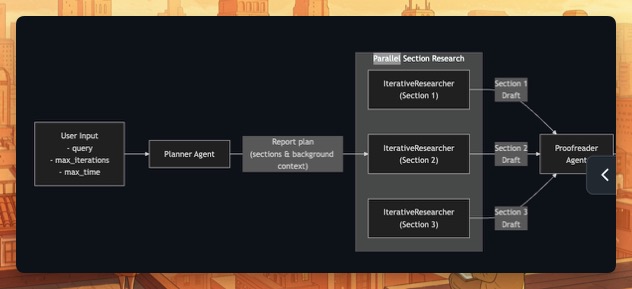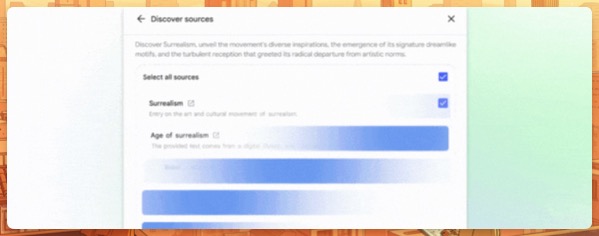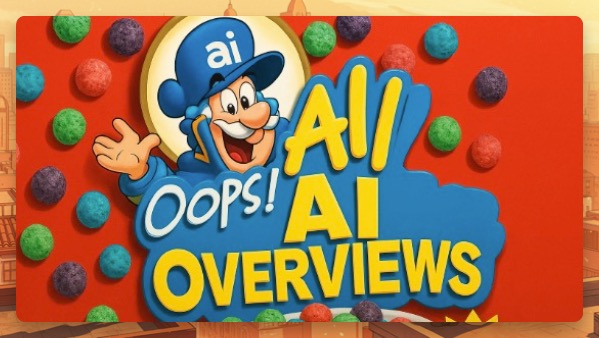Search Disrupted Newsletter (Issue 10)
Bing launches AI Overkills, Chatty Search, Branding in AI Search, and LLM Search Engine deep dives
AI is more than Chatty Search
Treating AI as just a fancy search is like calling nuclear fusion “spicy fire.”
It’s accurate, but you’re missing the point and about to get burned.
I bring this up because ChatGPT added a million new users in a single hour this week as everyone was fascinated by the prospect of turning their selfies, snapshots, and intrusive thoughts into Studio Ghibli-style pictures.
And while I think you and I both have a massive mental distinction between asking an AI to either:
- Make me a new thing
- Find me an existing thing
The AI systems do NOT, they only create.
What you think of as an AI SERP is the equivalent of saying, “Create a report in the style of a business document recommending a product or service.”
This gets more nuanced as we see systems ground themselves against Google results and call out to other systems to get the final answer, but strategically, we, as search professionals, need to think about how to give the AI systems the best possible raw material to create the best possible results.
Link: Sam Altman on ChatGPT’s new photo mode
DIY Deep Research
Have you ever wondered what’s happening inside those “deep research” features from Google, ChatGPT, and Perplexity?
Learn how they work with QX Labs’ open-source deep research agents.
It’s a new tool using OpenAI’s Agents SDK that’s less about finding information and more about understanding it.
The package comes in two modes:
→ Iterative Researcher: Runs a continuous research loop for shorter reports (under 1,000 words). You set constraints like depth, time limits, and formatting. Think of it as the sprint version.
→ Deep Researcher: The marathon runner. This one builds a proper report outline first, then launches parallel research instances for each section. Perfect for when you need 20+ pages of thoroughly researched content.
Link: QX Labs Deep Research Agents
Startup to Wunderbrand
Your brand has a secret reputation on AI search that most CMOs haven’t bothered to check, and spoiler alert: ChatGPT might be telling potential customers your product causes cancer (or worse, is “just ok”).
My fantastic conversation with Nicholas Kuhne about how AI isn’t just disrupting search; it’s completely reinventing brand perception in ways most companies haven’t begun to understand was just published.
We covered a ton of ground, from why Google is deliberately disrupting itself with Gemini (spoiler: they have no choice) to why commercial queries are the new SEO gold rush.
The most eye-opening part was when we demonstrated live what ChatGPT, Perplexity, and Gemini say about brands without the filter of traditional search results. Those AI hallucinations about your company aren’t just amusing errors; they’re marketing opportunities or reputation disasters waiting to happen.
Link: Startup to Wunderbrand
Learning the Learning Engines
At Knowatoa we spend a lot of time reverse engineering what and how the different LLM+AI search services work. This inevitably means reading many boring PDF research papers so you don’t have to.
But this week, we found a fascinating one on how to train LLMs to use search engines to use reinforcement learning.
How It Works
The researchers developed a framework where:
- The LLM generates text, occasionally making search queries within special tags
- A search engine returns results that get injected into the generation
- The model gets a simple reward-based only on the final answer’s correctness
- Reinforcement learning optimizes search behavior without explicit instructions
Unlike existing approaches, Search-R1 doesn’t need pre-defined search patterns or human demonstrations. It learns the entire search process naturally through trial and error.
Why This Matters for SEOs
This represents a significant step forward in creating more accurate and useful AI search systems, and it’s an approach that’s simple enough that it’s hard not to think that techniques like this will be used by all the different services in the future.
Link: Search-R1: Learning to Search with Reinforcement Learning
Google’s NotebookLM + Search
Google’s NotebookLM just got a major upgrade that makes every other AI research tool look like a digital card catalog. The new “Discover” feature transforms this note-taking app into a self-sufficient research machine that will scour the internet for source material based on a topic description.
Instead of forcing you to manually research, download, curate, and then upload to NotebookLM, you can now find and analyze “hundreds of potential web sources in seconds,” presenting you with up to ten recommendations along with summaries explaining why each one matters.
This goes a long way towards making NotebookLM more generally helpful and showcases some of the “future search UI” that Google is working on.
Link: Google’s NotebookLM + Search
Brand Representation is AI Search
Despite Google’s best efforts to convince you otherwise, your brand is not a website.
In AI search, your brand is a collection of names, sites, products, and people.
That’s why in Knowatoa, we’re taking a different approach than many of our competitors, focusing less on the site and domain and more on the actual brand.
Link: Knowatoa
Worse than being copied is not being copied
I’ve long felt that the only viewpoints worth holding are nuanced, as they’re much more honest.
On that basis, I loved this piece from Otakar Hubschmann, which is both hilarious and spot-on in its investigation of just what the AIs are doing with information in the wake of Ghibligate.
This gets at a much deeper point about how SEOs are torn between wanting our sites to be “imitated” and not “copied.”
Link: An image of an archeologist adventurer
Bing launches AI Overkill
“What if we just made it all AI Overviews?” seems to be the question Bing is asking as it launches its new Copilot Search, which ups the ante on the “AI Overview” game.
Now available to the public at Bing Copilot Search, we’re seeing a radical shift in what constitutes a “search” experience.
Combining elements of:
- deep research
- query rewriting
- “People Also Ask”
..and a UX that encourages a search journey that is entirely contained inside Bing.
It is a clear view of the future of search UX.
Link: Bing Copilot Search
Thanks this week
A big shoutout to my co-founder Ryan Castillo, for all his hard work delivering on the promise of Knowatoa.
Cheers!

p.s. It would really help me out if you could Follow me on LinkedIn








